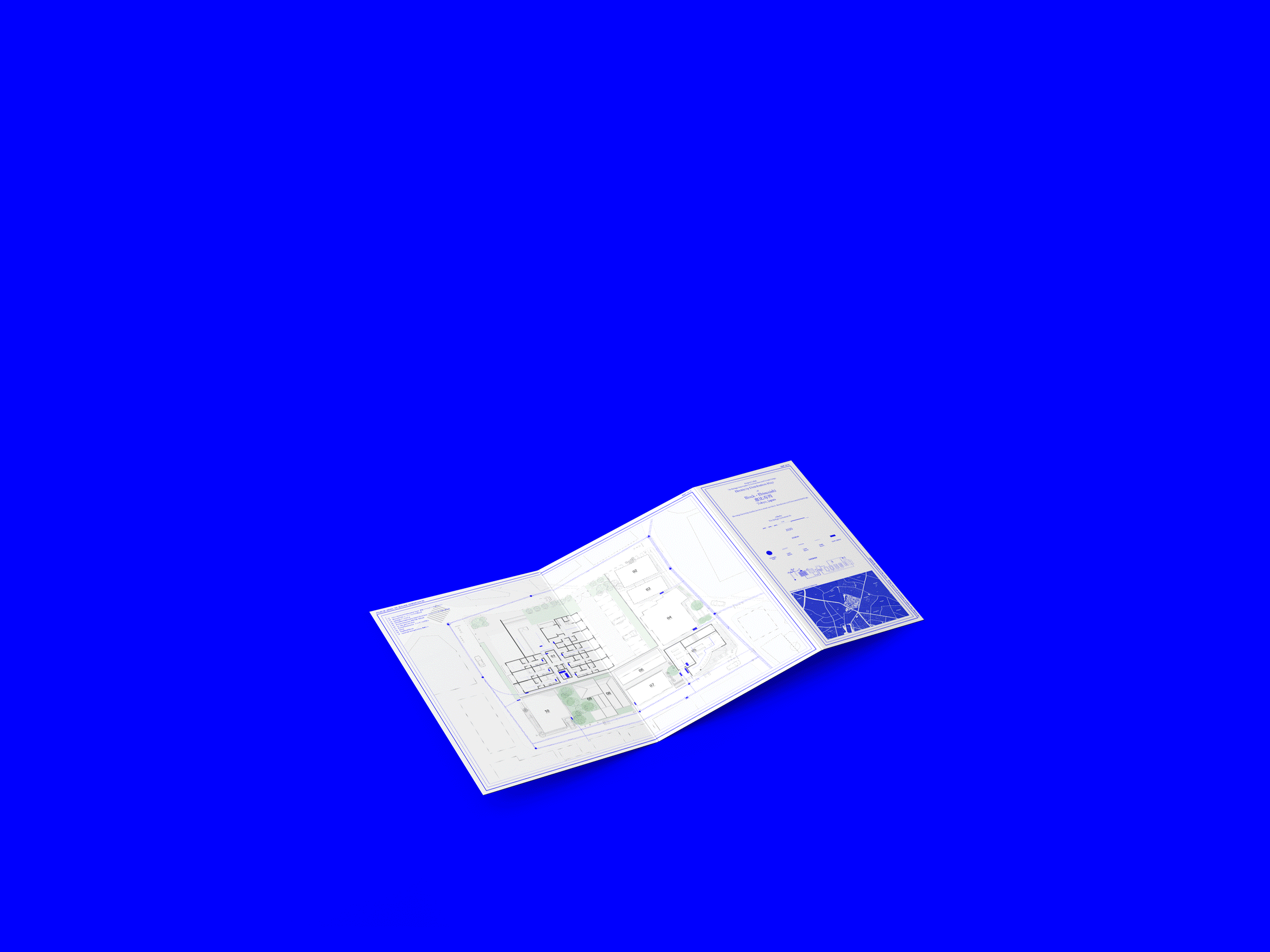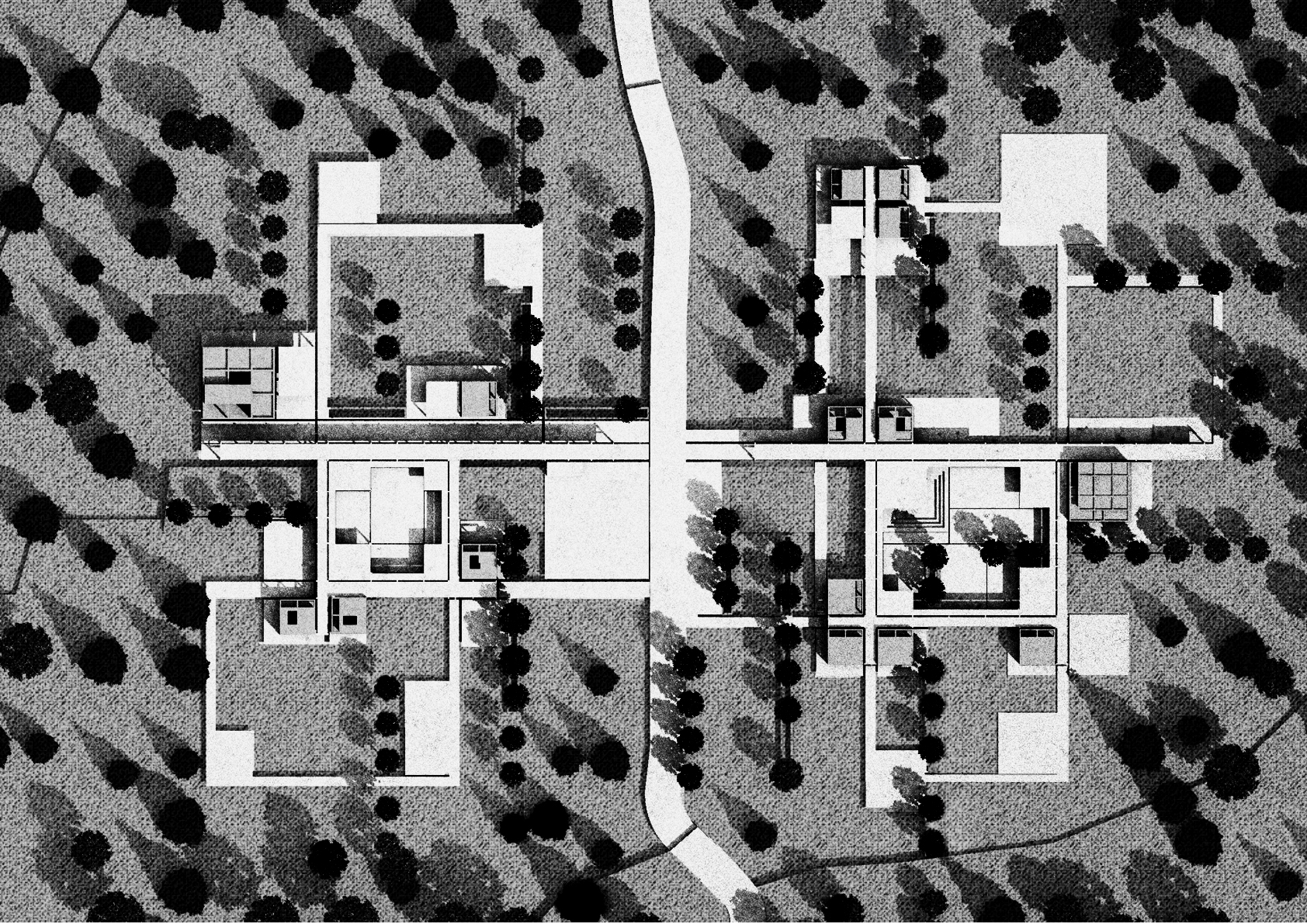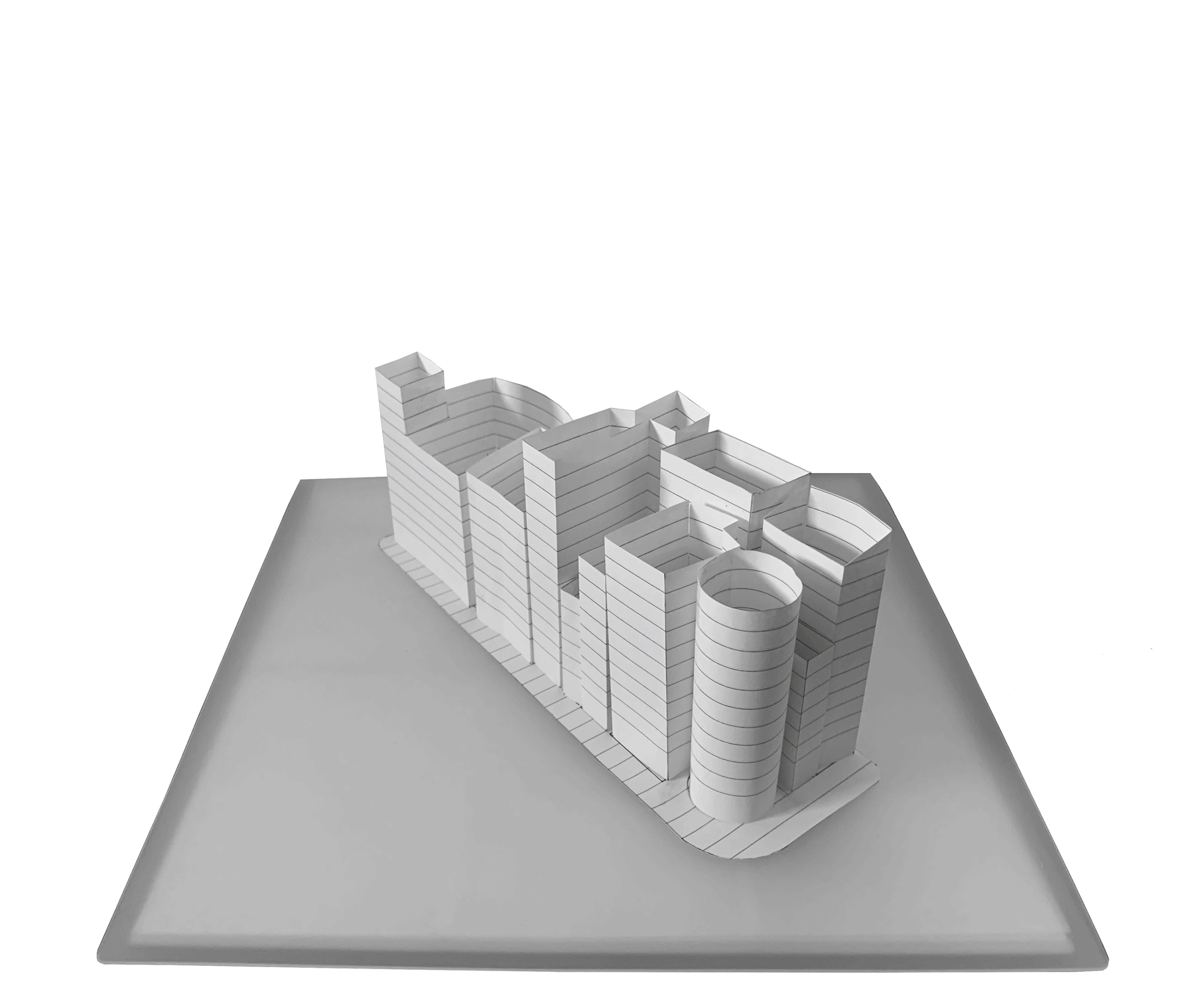Part 1: Catalogue and Lexicon
Based on both desk research and fieldwork surveys, we selected, documented, and classified a set of reference projects. From these specific lenses these case studies aimed to identify general design principles with relevance to power. Exploring the potential types and scopes of associated architectural projects the comprehensive cataloguing of objects and related systems give insight into the metabolism of modern metropolis.
Concrete Object: A specific object that fits in the matrix and in turn helps navigate through the system.
Failure of Systems: A condition that proclaims incompetency of the system.
Idealization of a System: A seemingly perfect condition.
Institutional: A framing or influence on the system through an institutional body.
Public Opinion: A view prevalent in the Public.
Based on both desk research and fieldwork surveys, we selected, documented, and classified a set of reference projects. From these specific lenses these case studies aimed to identify general design principles with relevance to power. Exploring the potential types and scopes of associated architectural projects the comprehensive cataloguing of objects and related systems give insight into the metabolism of modern metropolis.
Concrete Object: A specific object that fits in the matrix and in turn helps navigate through the system.
Failure of Systems: A condition that proclaims incompetency of the system.
Idealization of a System: A seemingly perfect condition.
Institutional: A framing or influence on the system through an institutional body.
Public Opinion: A view prevalent in the Public.
Filter by category:

1R, XK, XDK, XLDK
The average size of an apartment is sixty seven square meters per household. Many agents will refer to the price of the apartment per tsubo (one tsubo = 3.3 sqm).
Read more...
The average size of an apartment is sixty seven square meters per household. Many agents will refer to the price of the apartment per tsubo (one tsubo = 3.3 sqm).
Read more...

ABES
Algae Biomass and Energy System R&D Center was established at the University of Tsukuba on July 1, 2015. Consisting of fifty members of the university, this algae biomass research center is one of the largest of its kind in Japan.
Read more...
Algae Biomass and Energy System R&D Center was established at the University of Tsukuba on July 1, 2015. Consisting of fifty members of the university, this algae biomass research center is one of the largest of its kind in Japan.
Read more...

AC JAPAN
The French Publicis Groupe S.A. and Japanese Dentsu Inc. (株式会社電通 Kabushiki-gaisha Dentsū) are among the biggest multinational advertising corporations. Their market is divided in four main categories: National advertisement market (media projects), advertisement-related projects (marketing services), new market (sport events advertisement) and foreign market (all three categories internationally).
Read more...
The French Publicis Groupe S.A. and Japanese Dentsu Inc. (株式会社電通 Kabushiki-gaisha Dentsū) are among the biggest multinational advertising corporations. Their market is divided in four main categories: National advertisement market (media projects), advertisement-related projects (marketing services), new market (sport events advertisement) and foreign market (all three categories internationally).
Read more...
Part 1: Catalogue and Lexicon
Based on both desk research and fieldwork survey, we selected, documented, and classified a set of reference projects according to five categories: the idealization of system, the failure of a system, the institutions, the concrete objects, and the public opinion. From these specific case studies, the aim is to identify general design principles with relevance to power, and explore potential types and scopes of associated architectural projects.
Based on both desk research and fieldwork survey, we selected, documented, and classified a set of reference projects according to five categories: the idealization of system, the failure of a system, the institutions, the concrete objects, and the public opinion. From these specific case studies, the aim is to identify general design principles with relevance to power, and explore potential types and scopes of associated architectural projects.
Part 2: Atlas
The second part relates the principles as documented in Part 1 to the geographic specificity of Tokyo, and the related territory. From the Taiheiyo Belt—the country’s urbanized spine that runs along its plains—to the 23 wards—the city’s smallest administrative areas—to the city block, the work addresses a sequence of scales, and explores how each relates to the systems and objects of study.
13 Maps of Japan
6 Mini Atlases about Power and Energy
1 Model for Architectural Projects
Scroll down to begin
︎
Thirteen maps of Japan:
1. The World.Regulation and Diversification of Energy Resources Map
1. The World.Regulation and Diversification of Energy Resources Map
2. Japan. Power Plants & Other Maps
3. The Taiheiyo Belt. The Megalopolis Map
4. Gokaido. Energy Transmission Map
5. Shuto-Ken. Energy Transmission System Map
6. Tokyo Bay. Energy Sources Map
7. Tokyo To. Energy Distribution & Substations Map
8. Special Wards. Clean Authority Map
9. Tama Area. Production & Consumption Map
10. Shinjuku. Energy Distribution & Consumption Map
11. Toyosu - Todoroku - Mizuko. Urban and Suburban Condition Map
12. Chome - Kami-Ikebukuro 2-Chome. Neighbourhood Relations Map
13. Block - Ebisunishi. Electricity Distribution Map
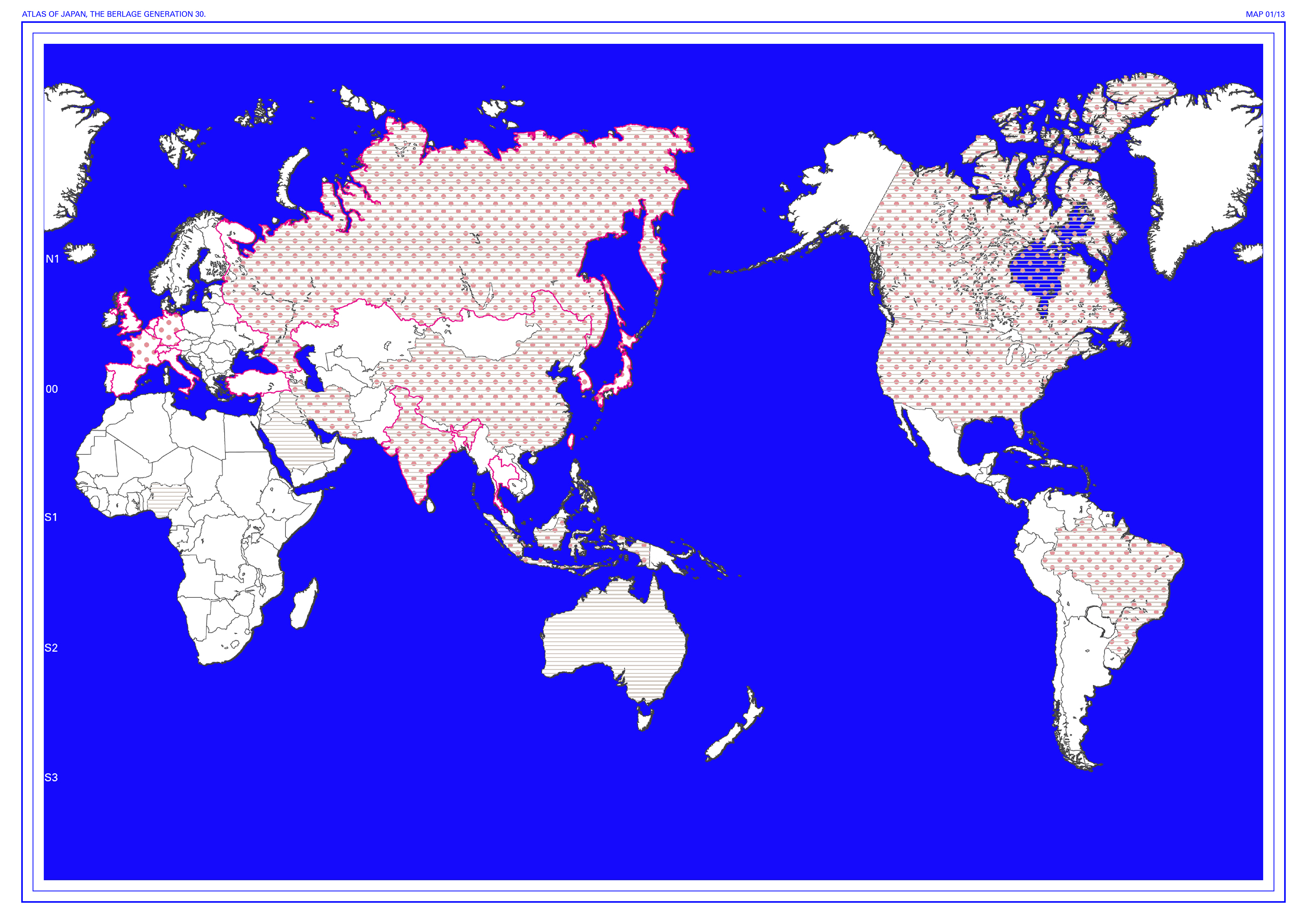
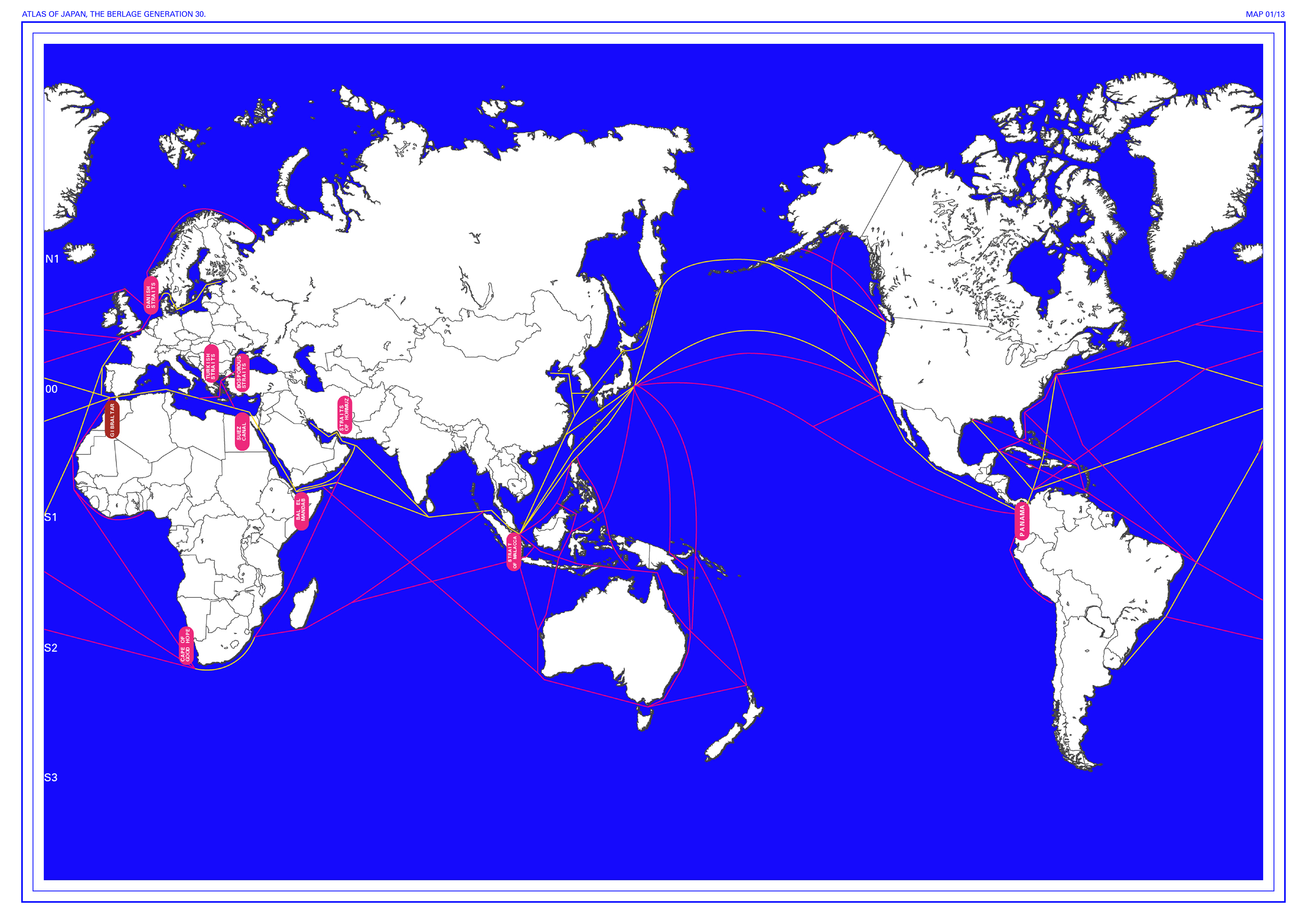
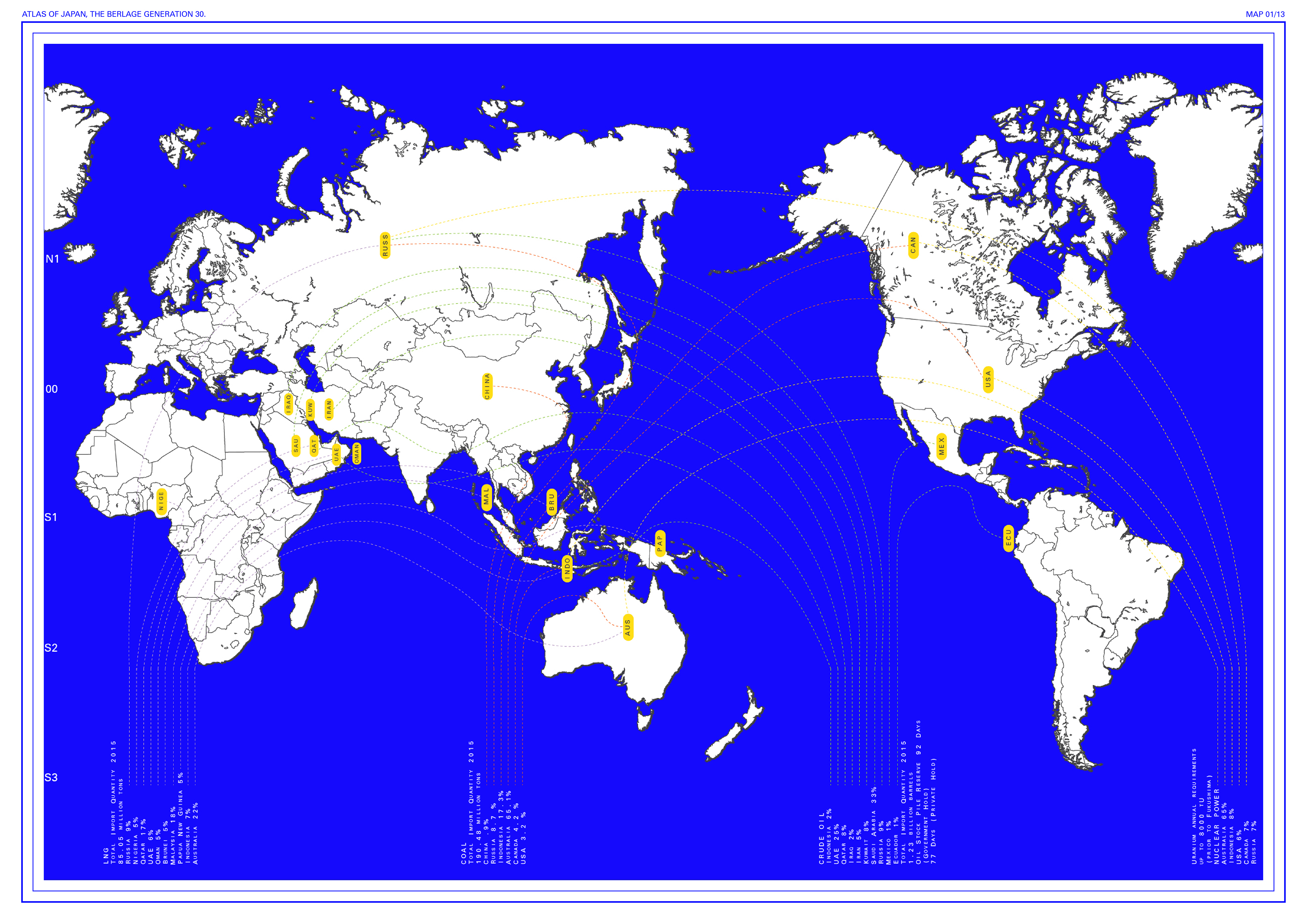
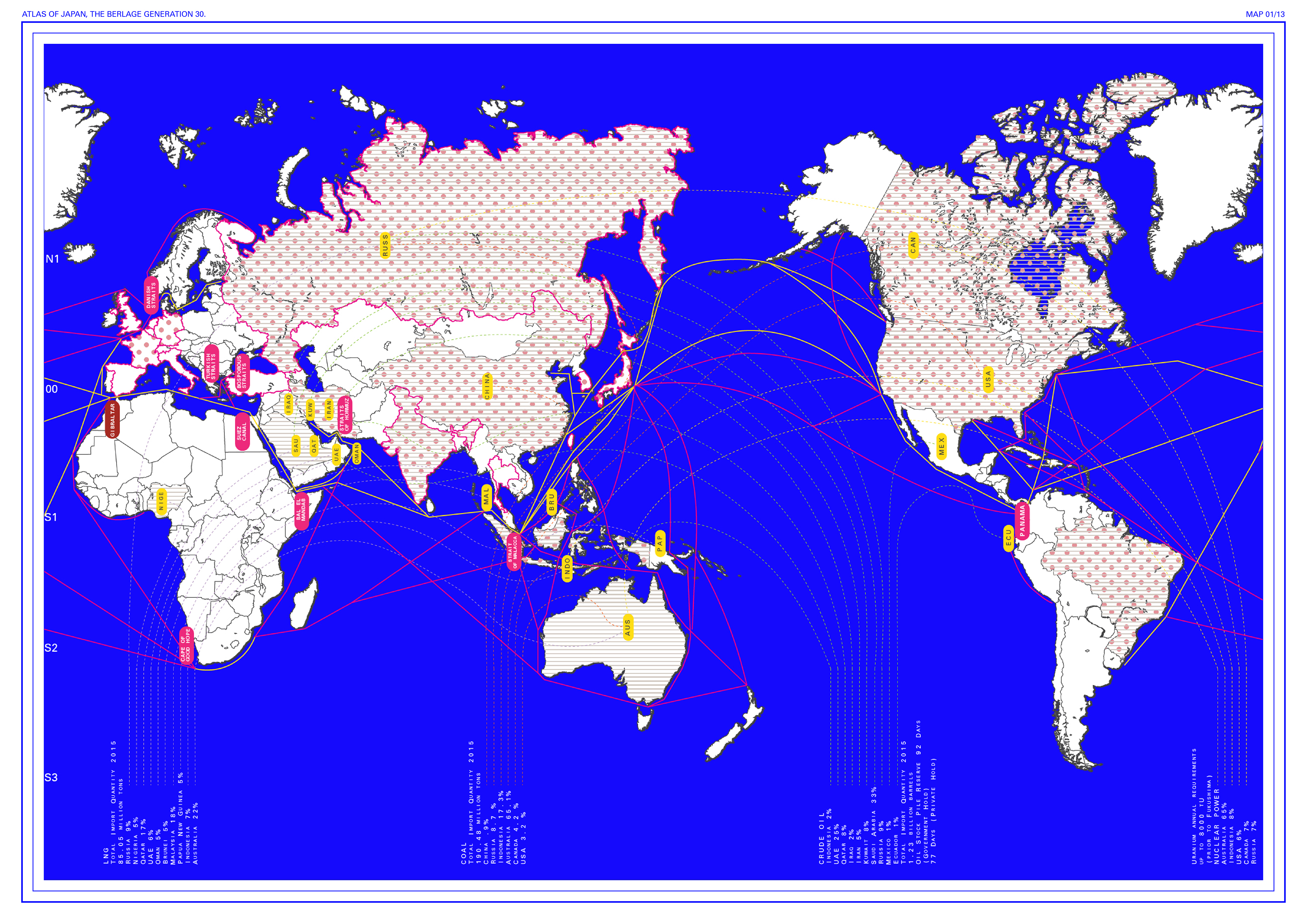
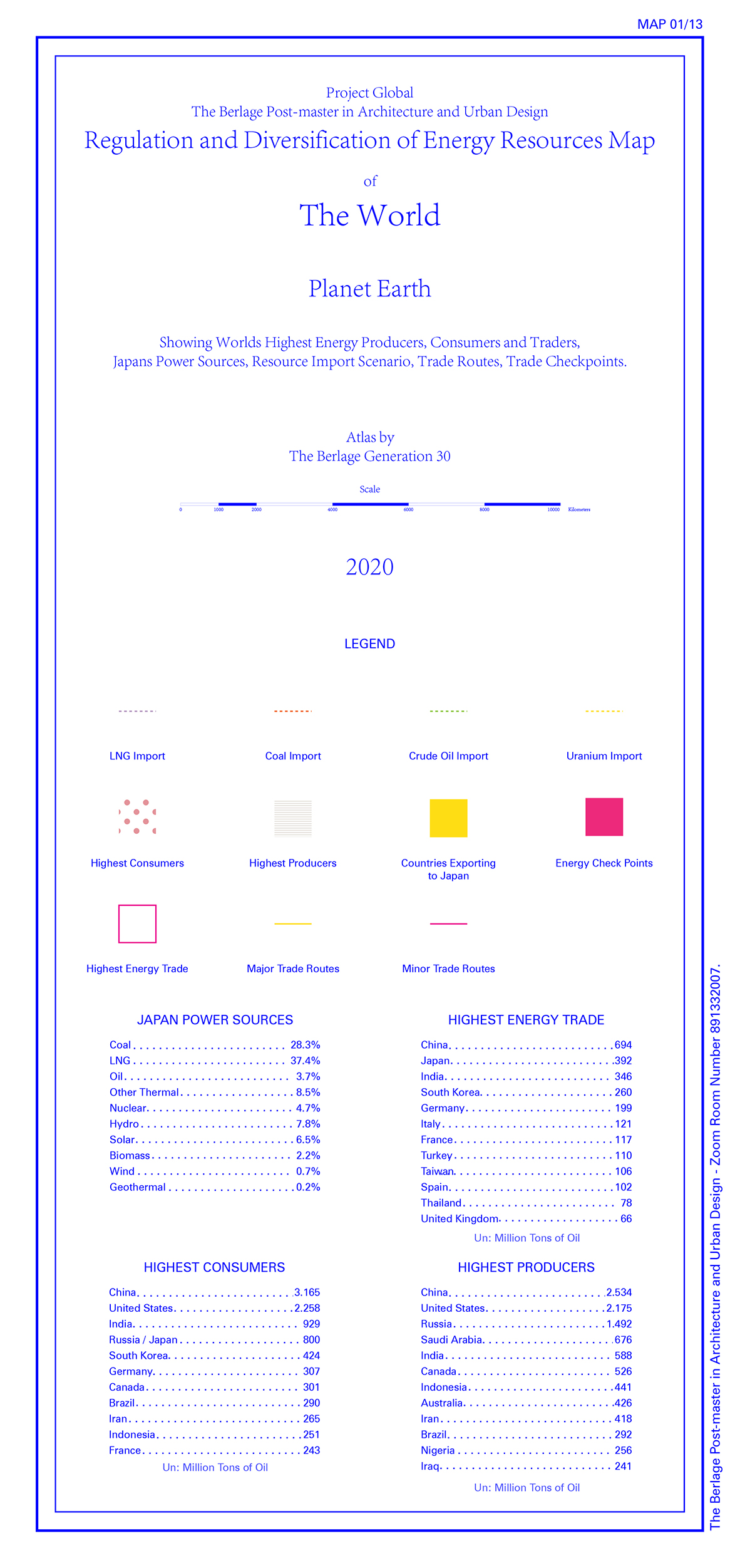
1. The World. Regulation and Diversification of Energy Resources Map
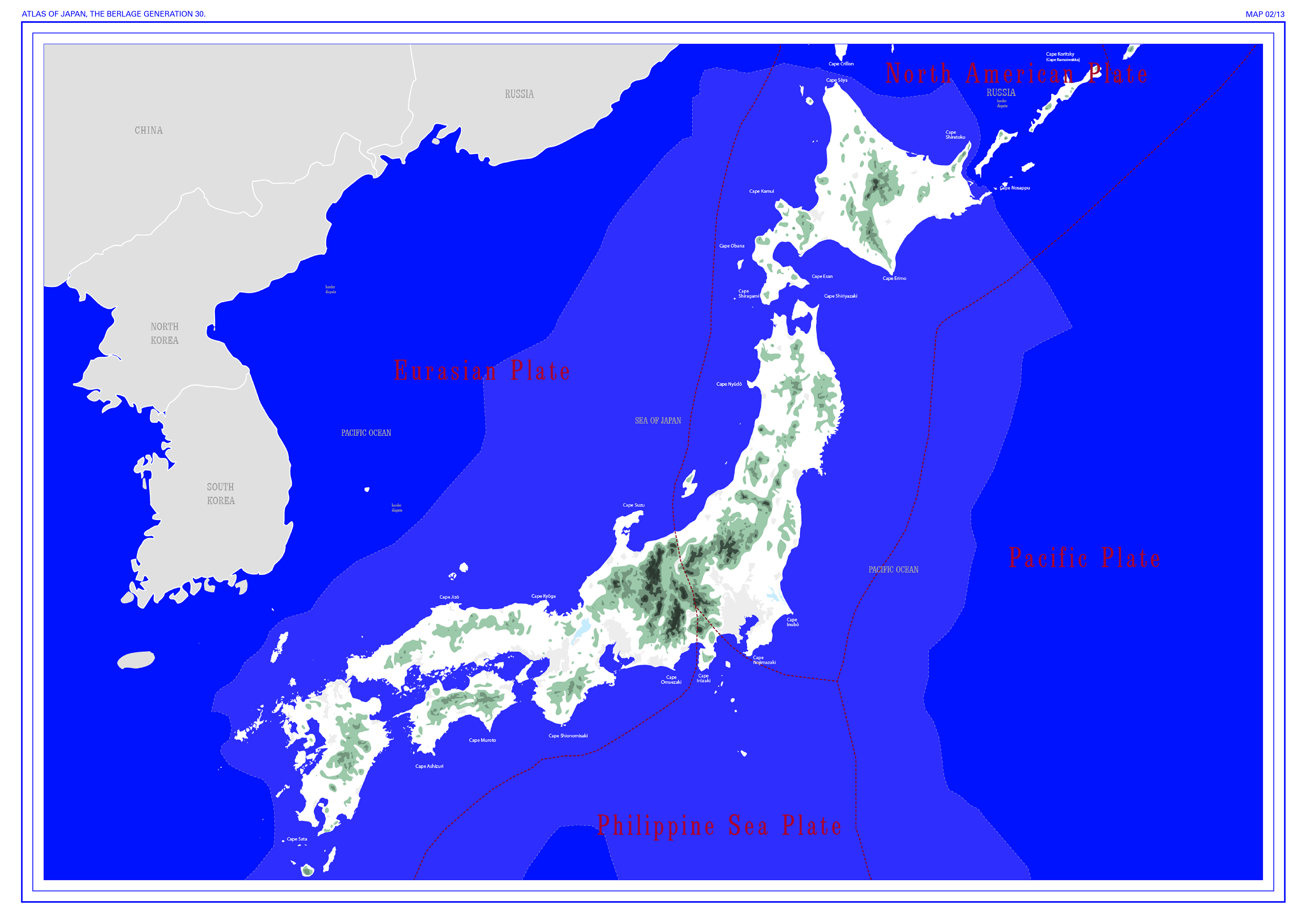
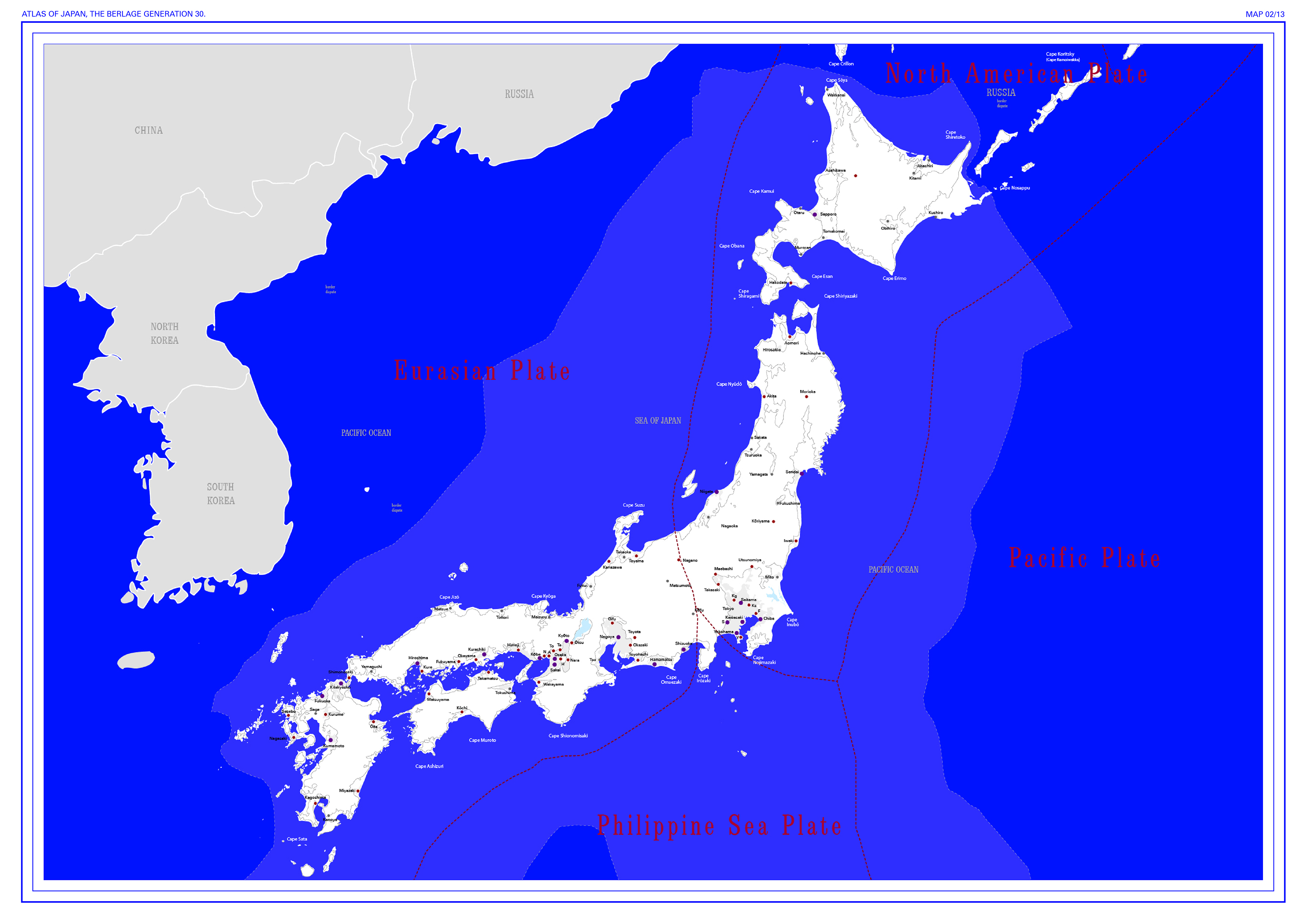
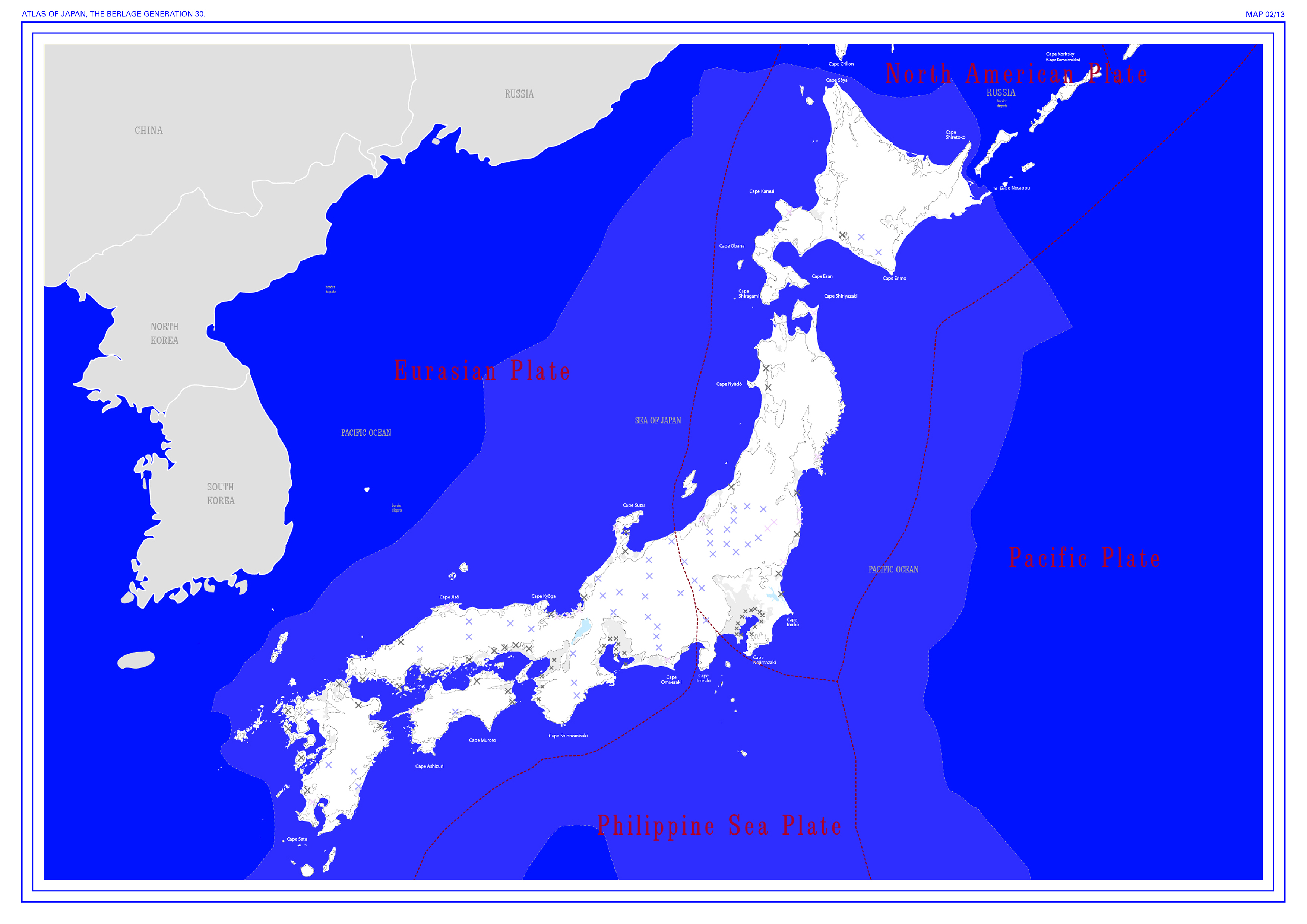


2. Japan. Power Plants & Others Map
Introduction: Pacific Rim of Energy
Part 3: Architectural Projects
The third part is aimed at the elaboration of a set of architectural projects situated in the city and territory of Japan. The proposals will draw upon the catalogue and lexicon, and atlas, continuing the built-up ilnes of inquiry and argumentation, and making use of the collected information and references. With the aim to explore the potential spectrum of architectural contributions with respect to power, a variation of scales, timeframes and project genres can be proposed, including singular project and prototypes, solutions as well as evocations.
Scroll down to beginIntroduction: Pacific Rim of Energy
I. Growth Cultures
II. Interstitial Strategies
III. Wiring Realities
Conclusion: Into Eternity
I. Growth Cultures
II. Interstitial Strategies
III. Wiring Realities
Conclusion: Into Eternity
︎
II. Interstitial Strategies




